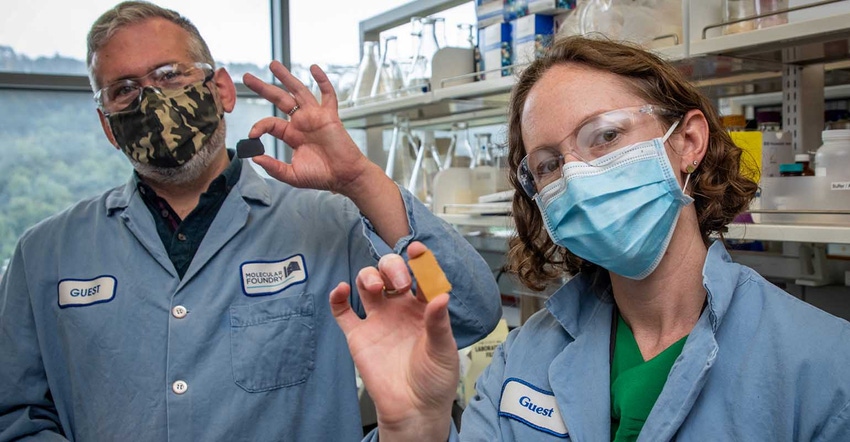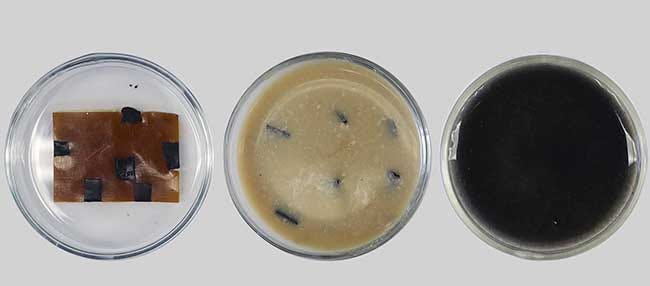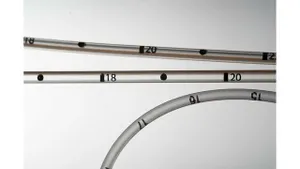New Circular Polymer May Solve Mixed-Use Plastics Recycling Dilemma
Polydiketoenamine, a plastic developed by scientists at the Lawrence Berkeley National Laboratory, reportedly can enable efficient and indefinite recycling.
July 20, 2022

Mixed plastics are technically challenging to recycle, resulting in most post-consumer-use mixed plastic products going to landfills or incinerators. Now, scientists at the Lawrence Berkeley National Laboratory have developed a system that enables recycling of post-consumer-use mixed-plastics. It is detailed in a peer-reviewed article published today in the technical journal Science Advances by the American Association for the Advancement of Science.
The material derived from the mixed plastic precursor should pave the way for a broader range of fully recyclable plastic products and allow for an efficient circular economy for durable goods, such as automobiles.
"We generate staggering quantities of plastic and plastic-containing products each year, but only a tiny fraction of that plastic can be recovered and used to manufacture products of similar quality," said Dr. Brett Helms, a staff scientist at Berkeley Lab's Molecular Foundry. "That’s because most products — from food-packaging films and single-use bags to sneakers and electronics — are made from mixtures of different plastics. Once they are mixed, those plastics can’t be recovered and used to make new bags or sneakers. Instead, most of [the plastic] ends up in landfills, incinerators, or oceans."
The mixed-plastics challenge
Berkeley Lab scientists are tackling this mixed-plastic challenge with a custom-designed material called polydiketoenamine (PDK), a new type of plastic they developed designed for efficient and indefinite recycling. They say it will provide a low-carbon manufacturing solution for plastic products that no longer have to go to a landfill.
|
Different PDK plastics in an acidic solution demonstrate how each polymer easily breaks down into individual monomers in different steps conducted at different temperatures, allowing for complete recycling of both plastics. |
In the Science Advances article, the researchers describe the process, as follows. “PDK resins are deconstructed as solids in the presence of metals and glass, obviating the high-cost melt filtration step required for recycling commodity plastics. At each stage of the thermally controlled recycling process, we recover specific monomers, additives, and fillers from PDK resins in either mixed-PDK blends, laminates, or assemblies that are indistinguishable from the associated primary feedstocks and reusable in closed-loop material life cycles,” they write.
“We now know how to tailor PDK plastics in order to recycle complex products comprising several types of materials,” Helms explained to PlasticsToday. “An example might be a shoe, where a textile is bonded to a rubber by an adhesive. Conventional materials used in such products can’t be recycled for reuse, since they can’t be deconstructed independently. Yet, if they were made from different, specially designed PDK polymers, they could be [deconstructed] for the first time.”
Chemical recycling
“The materials recovered after recycling are the original monomers,” Helms told PlasticsToday. “Recycling is conducted using strong acid. PDK plastics have been designed to deconstruct at different temperatures, which enables mixed-plastic recycling.”
Footwear, furniture, mattresses, and automotive interiors are examples of mixed-plastic products that could be recyclable, if they were made from PDK, he told PlasticsToday.
Potential limitations
“Limitations of the process are tied to whether other materials integrated with PDK undergo degradation in strong acid,” Helms said. “We can handle most metals, but there may be other materials that eventually cause issues. We tested mixed materials recycling for PDK resins alongside metal, glass, and other polymers. We found that the process allowed for recovery of the materials without consequential contamination. If there are other materials that degrade quickly in acid, they could cause issues in future recycling scenarios. However, that's hypothetical at this stage.”
Berkeley Lab has a patent on PDK materials and on processes for manufacturing and recycling, Helms told PlasticsToday. The patent has been licensed by two companies for commercialization.
Barriers remain before process can go mainstream
“It's important at early stages of PDK product development that PDK products are collected and sorted for chemical recycling, rather than discarded in a landfill,” said Helms. “Developing partnerships with customers, brands, and retailers will be critical in executing circularity.”
The commercial release of products made from PDK potentially is years away. “I anticipate that within three to five years, we will see the first PDK products available on the market,” Helms told PlasticsToday. “Before that happens, it will be important that the partnerships are in place to collect PDK products at end of life so that they may be recycled — a process that is conducted at lower cost and with less carbon emissions than primary PDK production.”
About the Author(s)
You May Also Like





